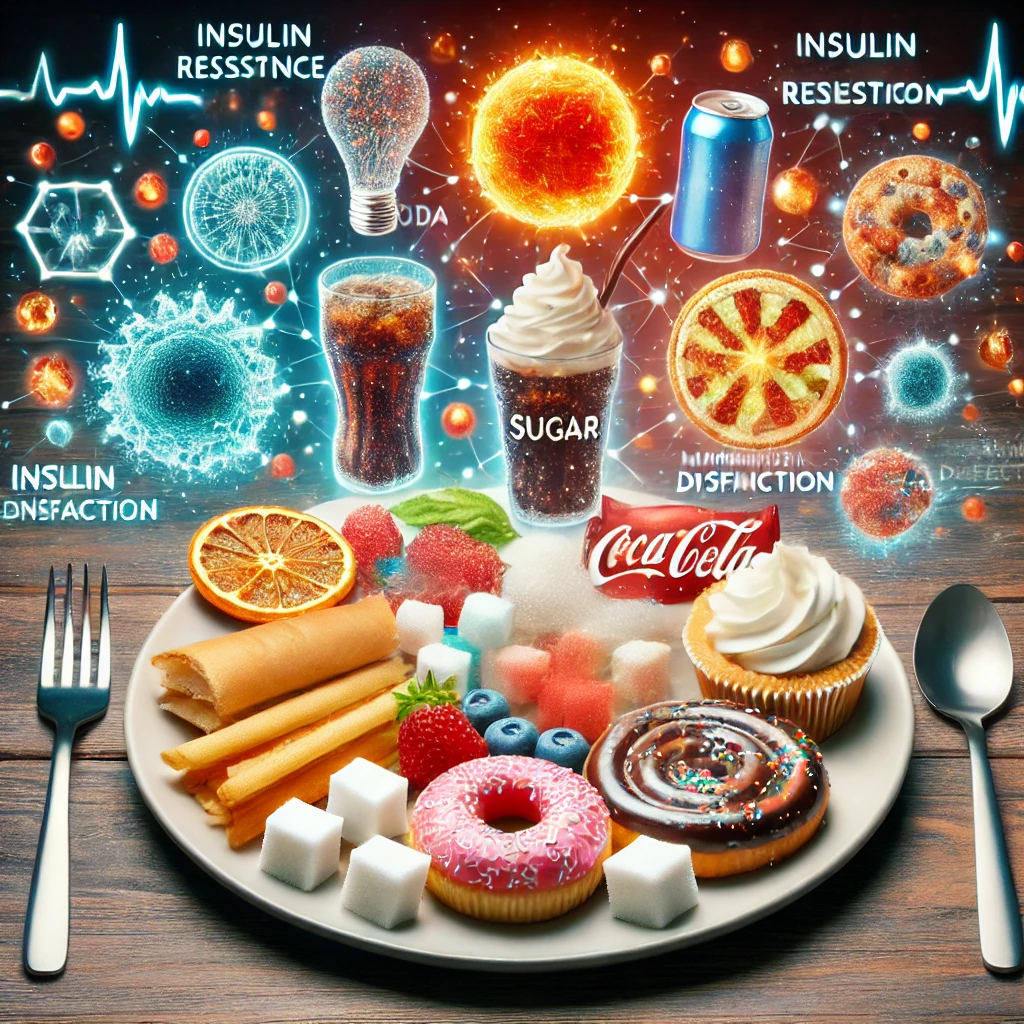
The Dangers of Excessive Sugar Intake
Sugar intake contributes to obesity, diabetes, and inflammation, accelerating the aging process.
Excess sugar consumption accelerates cellular aging by promoting oxidative stress and glycation of proteins.
Minimizing processed sugar intake and choosing natural alternatives can slow the aging process.
The Dangers of Excessive Sugar Intake
Introduction
Sugar is a common ingredient in modern diets, but excessive intake has been linked to numerous health concerns, including obesity, diabetes, and accelerated aging. While natural sugars in fruits and whole foods can be part of a healthy diet, added sugars in processed foods contribute to chronic disease. This article explores the dangers of excessive sugar consumption, its impact on longevity, and strategies to reduce intake.
How Excess Sugar Affects Health
1. Contributes to Obesity and Metabolic Disorders
- Excess sugar intake leads to weight gain and visceral fat accumulation.
- High sugar consumption contributes to insulin resistance, a precursor to type 2 diabetes.
2. Increases the Risk of Heart Disease
- Diets high in sugar elevate triglyceride levels and LDL (bad) cholesterol.
- Excessive sugar promotes inflammation and arterial plaque buildup, increasing the risk of heart disease and stroke.
3. Accelerates Aging and Skin Damage
- High sugar levels cause glycation, a process that damages collagen and leads to wrinkles and sagging skin.
- Excess sugar increases oxidative stress, contributing to premature aging and age-related diseases.
4. Negatively Impacts Brain Function
- Excess sugar consumption is linked to cognitive decline, memory impairment, and an increased risk of Alzheimer’s disease.
- Blood sugar spikes and crashes can lead to brain fog and poor concentration.
5. Weakens the Immune System
- High sugar intake suppresses immune function, making the body more susceptible to infections and chronic diseases.
- Sugar disrupts gut microbiome balance, which is crucial for immune health.
How to Reduce Sugar Intake
- Limit Processed and Packaged Foods: Many contain hidden added sugars.
- Choose Whole Fruits Over Fruit Juices: Whole fruits provide fiber, which slows sugar absorption.
- Use Natural Sweeteners in Moderation: Opt for honey, stevia, or monk fruit instead of refined sugar.
- Read Food Labels Carefully: Look for ingredients like high-fructose corn syrup, cane sugar, and dextrose.
- Stay Hydrated with Water and Herbal Teas: Reduce consumption of sodas and sugary drinks.
Conclusion
Excessive sugar consumption contributes to weight gain, metabolic disorders, heart disease, and accelerated aging. Reducing sugar intake by focusing on whole, nutrient-dense foods and eliminating processed sugars can help improve health, longevity, and overall well-being. Making mindful dietary choices can significantly enhance quality of life and reduce the risk of chronic diseases.
Unlock Your Potential with Biomarker, Nutrition and Activity Tracking
Understanding your biomarkers is key to optimizing your health. NOVA's clinics, team and AI-driven platform seamlessly ingest and analyze this data to provide personalized coaching tailored to your unique performance goals.
FAQs
Sugar promotes glycation, oxidative stress, and chronic inflammation, leading to premature aging and disease.
Still have questions?
Book a consult to meet with one of our health experts
Launch Your Health Journey Today
Unlock your potential with our coaching and AI platform that personalizes your health goals and provides daily coaching. Start your journey towards a healthier you and experience the difference.
